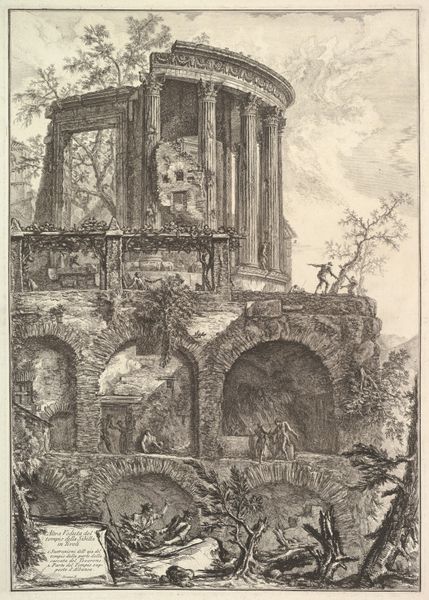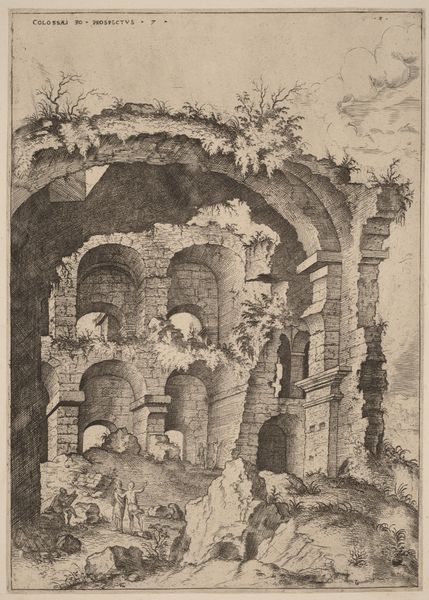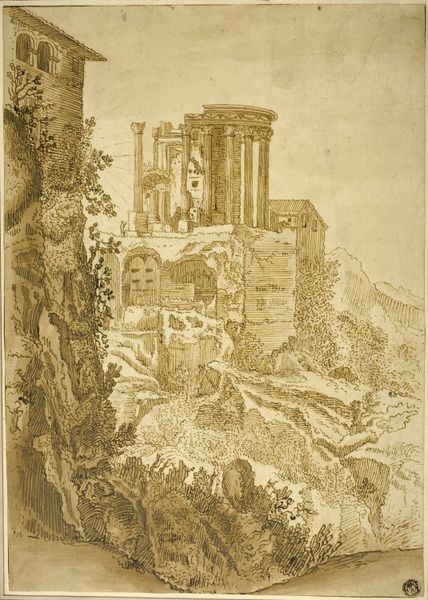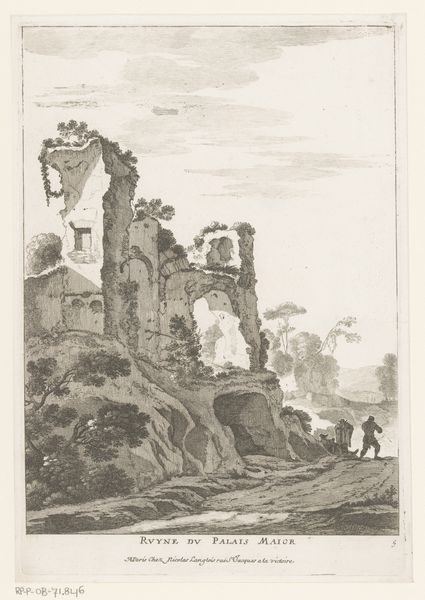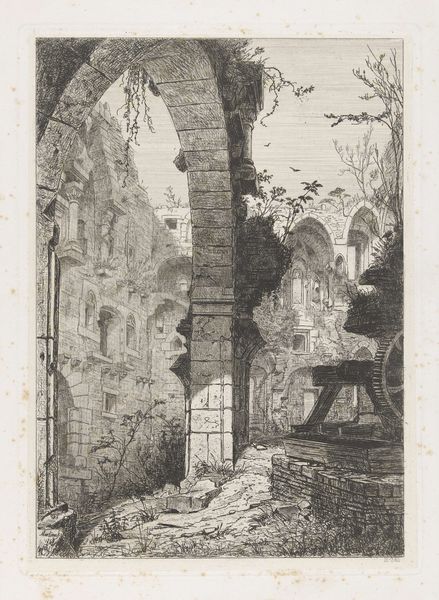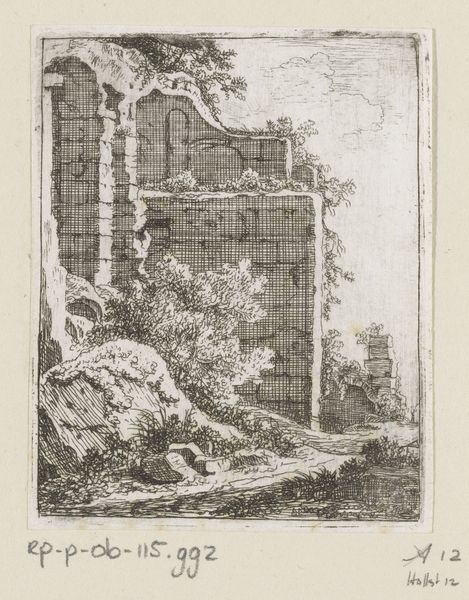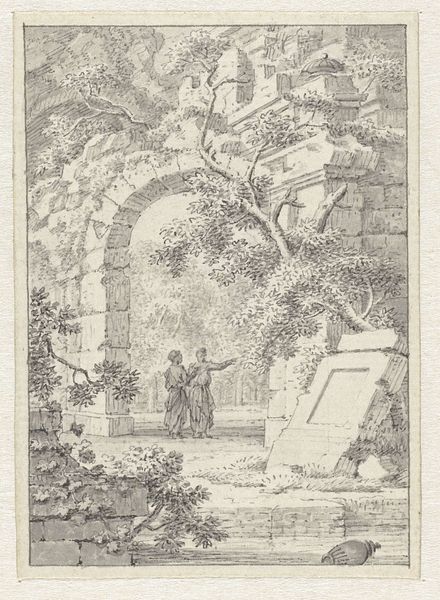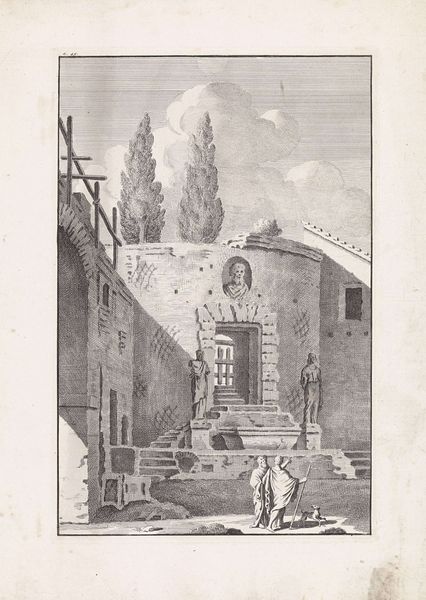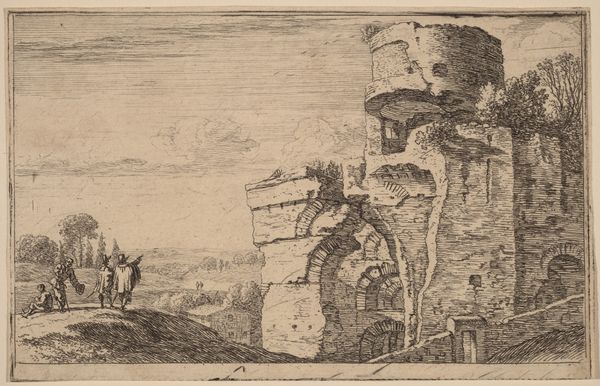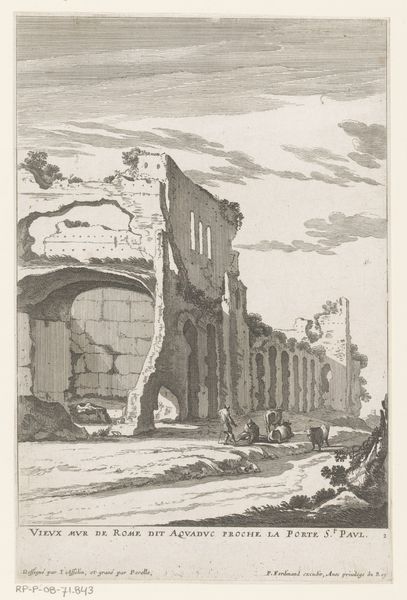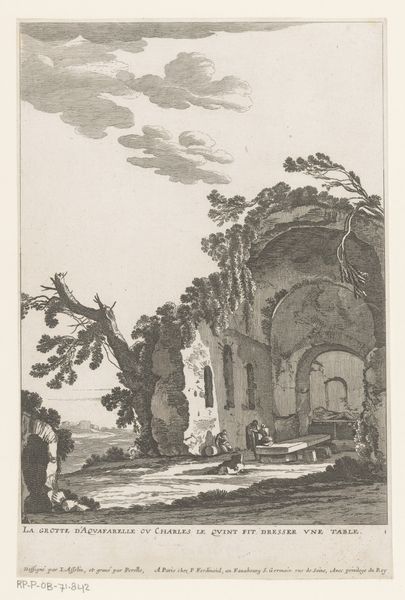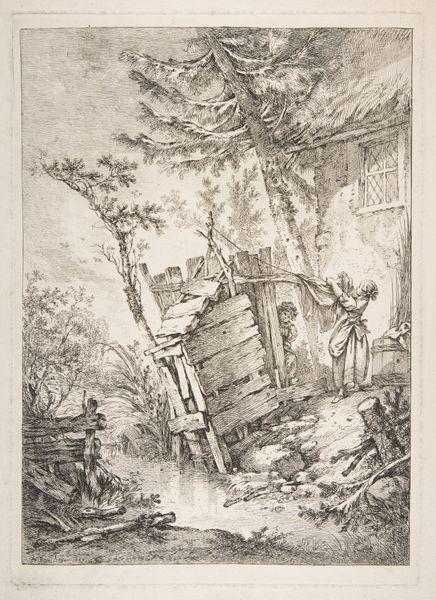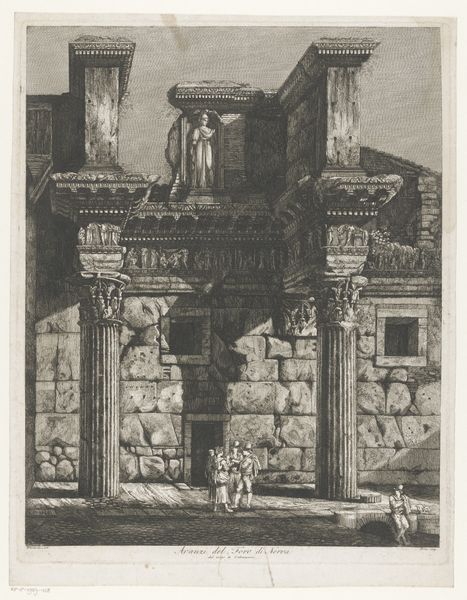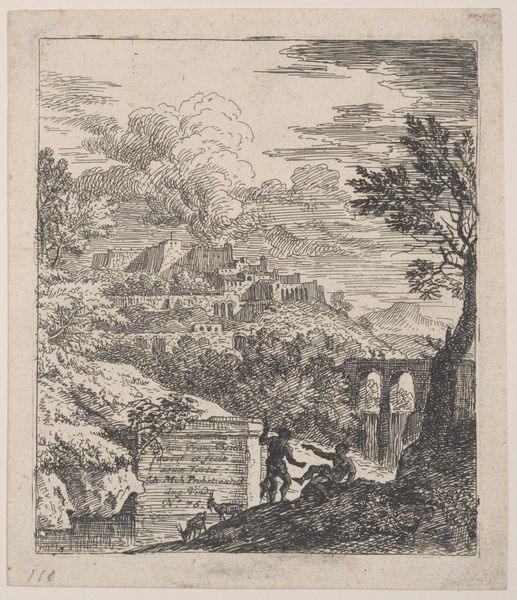
print, etching
#
baroque
# print
#
etching
#
landscape
#
etching
#
ancient-mediterranean
#
history-painting
Dimensions: plate: 36.1 x 23.6 cm (14 3/16 x 9 5/16 in.)
Copyright: National Gallery of Art: CC0 1.0
Editor: This etching, "Rovine d'antichi Edifizj" or "Ruins of Ancient Buildings", is by Giovanni Battista Piranesi, likely from 1743 or 1744. It feels quite theatrical, almost like a stage set depicting a fall of civilization. What's your interpretation of this fallen grandeur? Curator: Exactly! Piranesi wasn’t merely documenting ruins; he was staging a dialogue between past and present, power and decay. How does this imagery of the "fall" resonate with contemporary anxieties about cultural loss, perhaps anxieties around shifting global power? Editor: Well, looking at this, I can't help but think of climate change and the potential collapse of modern societies, how future generations might see our monuments in ruin. Curator: Precisely! Piranesi's ruins can be seen as a critique of power structures and the fleeting nature of empire. But more than just that, the artist’s choice of etching brings forward class issues. Who has access to these grandiose reflections, and what does that gatekeeping mean? Editor: So, the act of documenting and disseminating these images becomes a political statement? Curator: It certainly can. Consider who commissioned these prints, who consumed them, and what ideologies were being reinforced or challenged. The scale, the almost romantic depiction of decay—it all speaks to a fascination with the past but also a particular vision of the present. Are we equally attentive to the decay happening right now? What gets valorized and what gets erased in the narratives of history? Editor: I see. It’s not just a picture of ruins; it's a question about the narratives we build around power and history. I hadn't considered the role of printmaking itself. Curator: Absolutely. And remember, every depiction is a choice, a perspective. Editor: Thanks, I’m going to rethink how I view landscape art moving forward. Curator: It’s all about context and constantly questioning our assumptions.
Comments
No comments
Be the first to comment and join the conversation on the ultimate creative platform.
